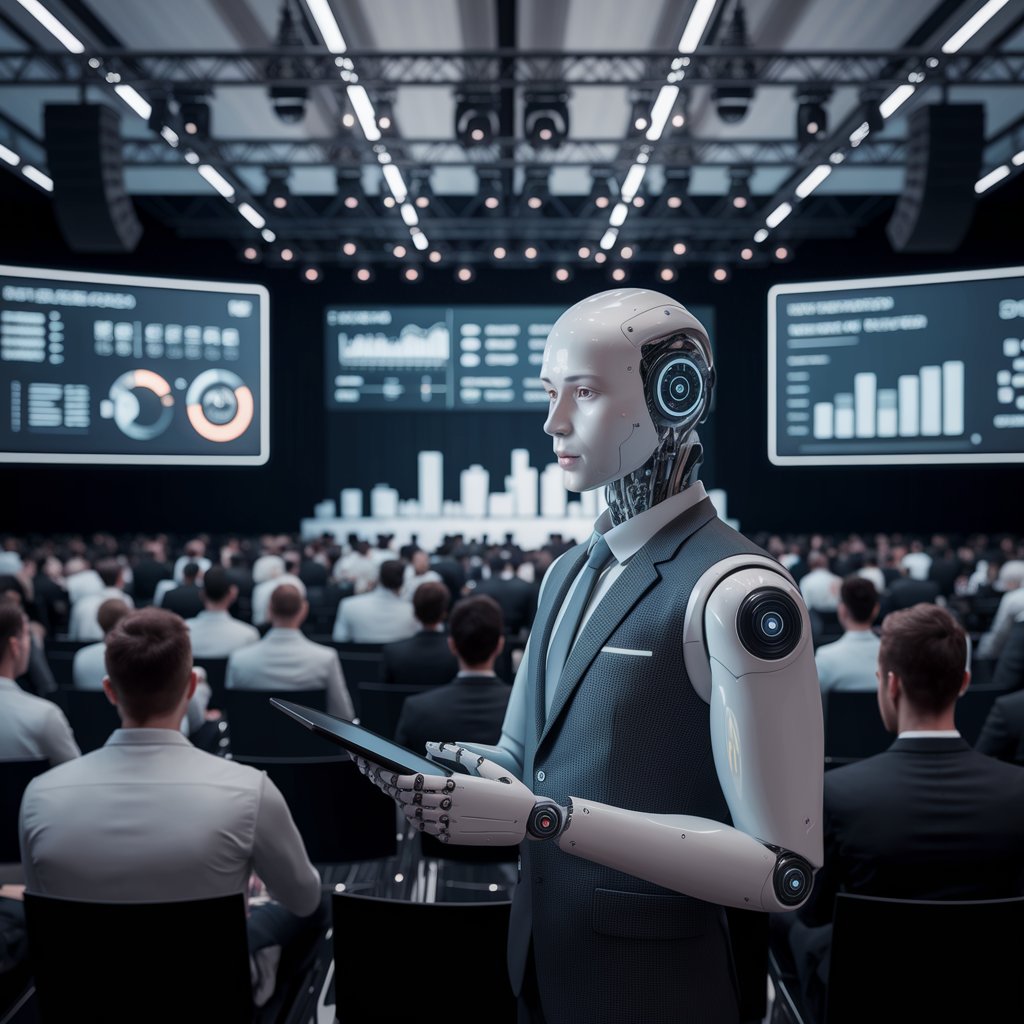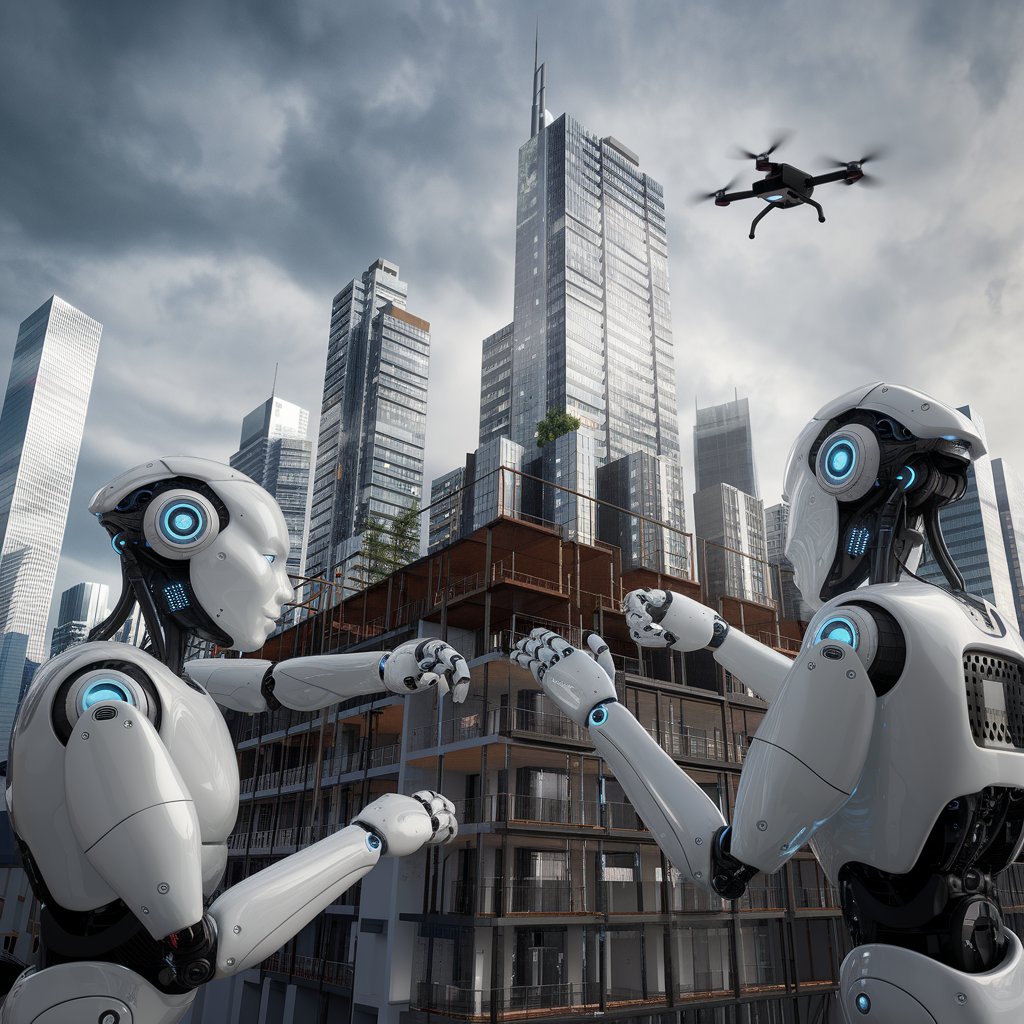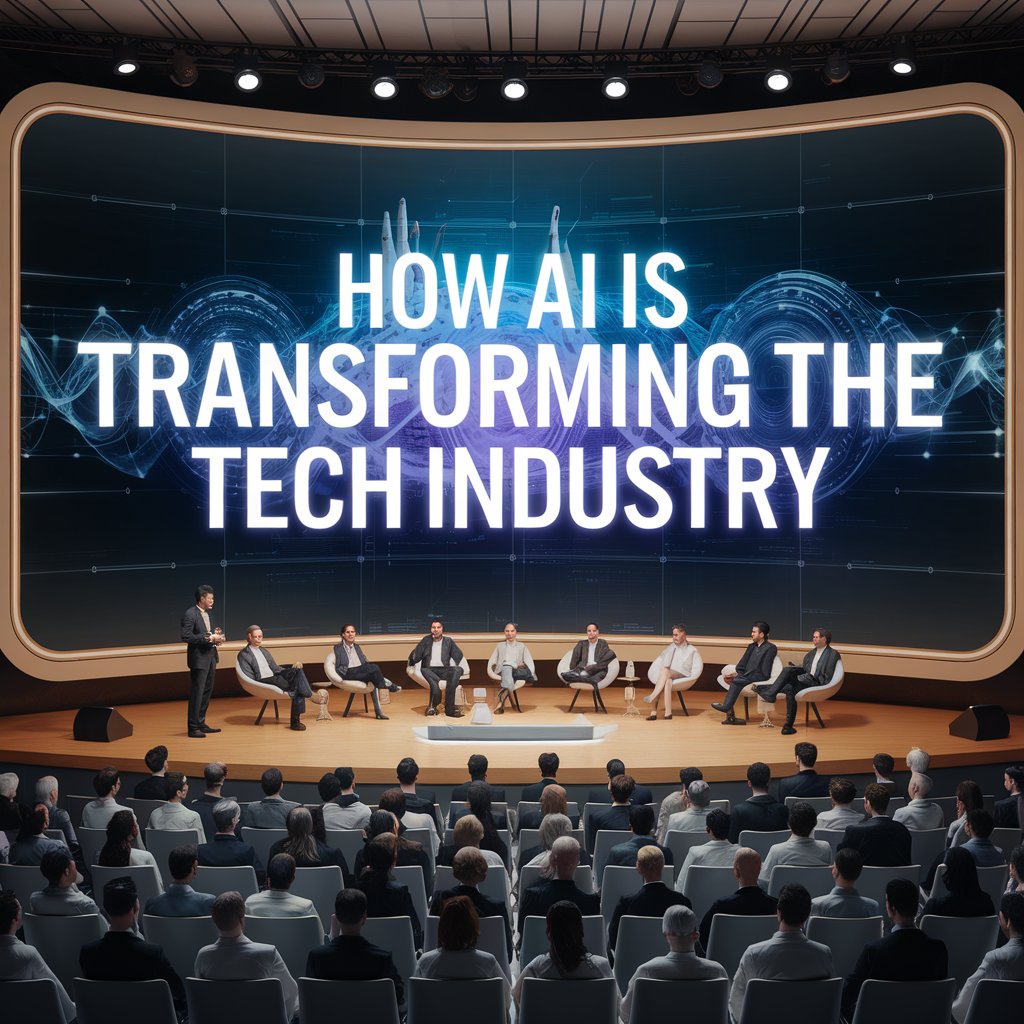What is Artificial Intelligence (AI)?
Artificial Intelligence refers to machines designed to mimic human intelligence. There are two main types of AI: Narrow AI, which is designed to perform specific tasks like facial recognition, and General AI, which can perform a wide range of tasks. The history of AI can be traced back to the mid-20th century, but recent advancements have allowed it to be used in ways never before imagined.
The Evolution of AI in the Tech Industry
AI has been used in tech since its early inception, but the true transformation began in the 21st century. With the advancement of machine learning algorithms and neural networks, AI began to power everything from search engines to autonomous vehicles. These developments are leading to smarter, faster, and more efficient technologies.
How AI is Powering Automation
One of the most profound impacts AI is having on the tech industry is automation. AI-powered systems can automate repetitive and mundane tasks, such as data entry, customer service interactions, and even some creative processes. This not only reduces the need for human intervention but also enhances productivity and efficiency.
AI and Machine Learning: A Game-Changer in Data Processing
With the explosion of big data, the need for efficient data processing has never been more critical. AI, particularly machine learning algorithms, can analyze and process vast amounts of data faster and more accurately than any human. This is particularly useful in industries like finance, healthcare, and marketing, where data-driven decision-making is essential.
AI in Cloud Computing
The integration of AI with cloud computing is revolutionizing how data is stored and processed. AI enhances cloud platforms by providing predictive analytics, automating infrastructure management, and optimizing resources. As a result, cloud services become more scalable, efficient, and cost-effective.
AI’s Impact on Software Development
Software development has also been significantly influenced by AI. AI-driven tools are helping developers automate coding, debugging, and testing processes. This not only speeds up development but also improves the overall quality and reliability of software products.
AI in Cybersecurity
Cybersecurity is another area where AI is making a substantial difference. AI systems can detect and respond to threats faster than traditional methods. By analyzing patterns in data, AI can identify potential security risks, malware, and breaches before they become significant problems. This is essential in protecting sensitive data in an increasingly connected world.

AI and the Internet of Things (IoT)
AI is transforming the Internet of Things (IoT) by enabling devices to learn from their environments. AI-powered IoT systems can process data in real-time, making smart decisions without human intervention. This has numerous applications, from smart homes to industrial automation.
AI in Customer Service and Support
AI is revolutionizing customer service through chatbots and virtual assistants. These AI-powered tools can handle inquiries, resolve issues, and even predict customer needs. This leads to faster response times, higher customer satisfaction, and lower operational costs for businesses.
AI in Healthcare Tech
The healthcare sector is experiencing tremendous benefits from AI. From diagnosing diseases to creating personalized treatment plans, AI-powered systems are helping doctors make better decisions faster. Moreover, AI is being used to manage healthcare data, improve patient care, and streamline hospital operations.
AI and the Future of Work
AI is changing the workforce by automating repetitive tasks and augmenting human capabilities. While there are concerns about AI replacing jobs, it is also creating new opportunities in fields like AI development, data analysis, and robotics. AI’s ability to boost workplace productivity cannot be ignored.
Ethical Considerations and AI
As AI continues to evolve, ethical concerns such as bias, privacy, and fairness must be addressed. AI algorithms are only as good as the data they’re trained on, and if that data is biased, the outcomes will be too. Ensuring that AI is developed and used ethically is a challenge that tech companies must face.
Future Prospects of AI in Tech
Looking ahead, AI will continue to grow in importance. Emerging technologies like quantum computing and advanced robotics will push the boundaries of what AI can achieve. The future of AI holds endless possibilities, from revolutionizing industries to solving some of humanity’s biggest challenges.

Outline:
- Introduction
- Overview of AI’s growing role in the tech industry
- Importance of understanding AI’s influence
- What is Artificial Intelligence (AI)?
- Basic definition and types of AI (Narrow AI, General AI)
- Brief history of AI development
- The Evolution of AI in the Tech Industry
- Early use of AI in technology
- Significant advancements in AI technologies
- How AI is Powering Automation
- Role of AI in automating routine tasks
- Benefits of automation for businesses
- AI and Machine Learning: A Game-Changer in Data Processing
- Importance of AI in data analysis and processing
- Machine learning algorithms in data management
- AI in Cloud Computing
- Integration of AI with cloud services
- How AI enhances cloud efficiency and scalability
- AI’s Impact on Software Development
- AI-driven coding and debugging
- How AI tools are improving software quality
- AI in Cybersecurity
- AI’s role in identifying and mitigating cyber threats
- Importance of AI in securing digital infrastructures
- AI and the Internet of Things (IoT)
- How AI enhances IoT systems
- Use cases of AI-powered IoT in various industries
- AI in Customer Service and Support
- AI chatbots and virtual assistants transforming customer support
- Benefits of AI-driven customer service platforms
- AI in Healthcare Tech
- AI applications in medical diagnostics and treatment planning
- How AI is improving patient care and healthcare management
- AI and the Future of Work
- Impact of AI on jobs and workforce dynamics
- How AI is reshaping workplace productivity
- Ethical Considerations and AI
- Challenges of bias and fairness in AI algorithms
- The importance of ethical AI development
- Future Prospects of AI in Tech
- Predicted advancements in AI technology
- How AI will continue to evolve and transform industries
- Conclusion
- Summary of AI’s transformative role in the tech industry
- The future potential of AI in shaping the digital world
Introduction
Artificial Intelligence (AI) is no longer just a concept from science fiction; it’s a reality that is reshaping the tech industry at an unprecedented pace. From automating routine tasks to advancing data processing, AI’s influence is growing rapidly. Understanding how AI is transforming technology is crucial for both businesses and individuals in this evolving digital landscape.
Conclusion
AI is undeniably transforming the tech industry in numerous ways, from automation and data processing to cybersecurity and customer service. As AI continues to evolve, its impact on the tech landscape will only become more profound. The future is bright, and AI is at the heart of this exciting transformation.

FAQs
- How does AI help in automation?
AI automates repetitive tasks by mimicking human decision-making, which saves time and boosts productivity in various industries. - What are the main challenges in AI development?
Key challenges include ensuring unbiased data, maintaining user privacy, and addressing ethical concerns like fairness and transparency. - How is AI used in cybersecurity?
AI identifies patterns in data to detect and respond to potential threats in real time, improving overall digital security. - Can AI replace human jobs?
While AI may automate some jobs, it also creates new roles in AI development, data science, and related fields. - What is the future of AI in the tech industry?
The future of AI includes advancements in quantum computing, robotics, and more sophisticated machine learning algorithms.
